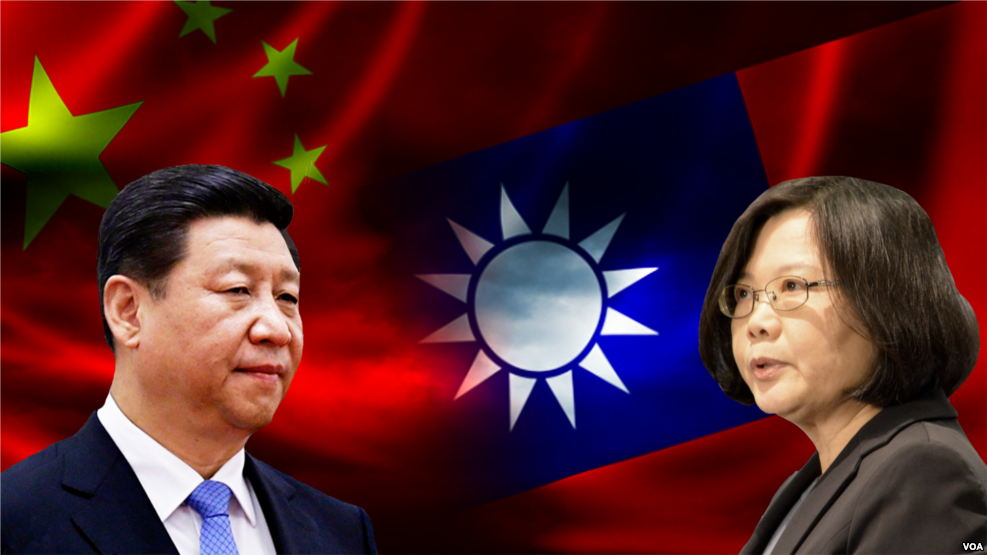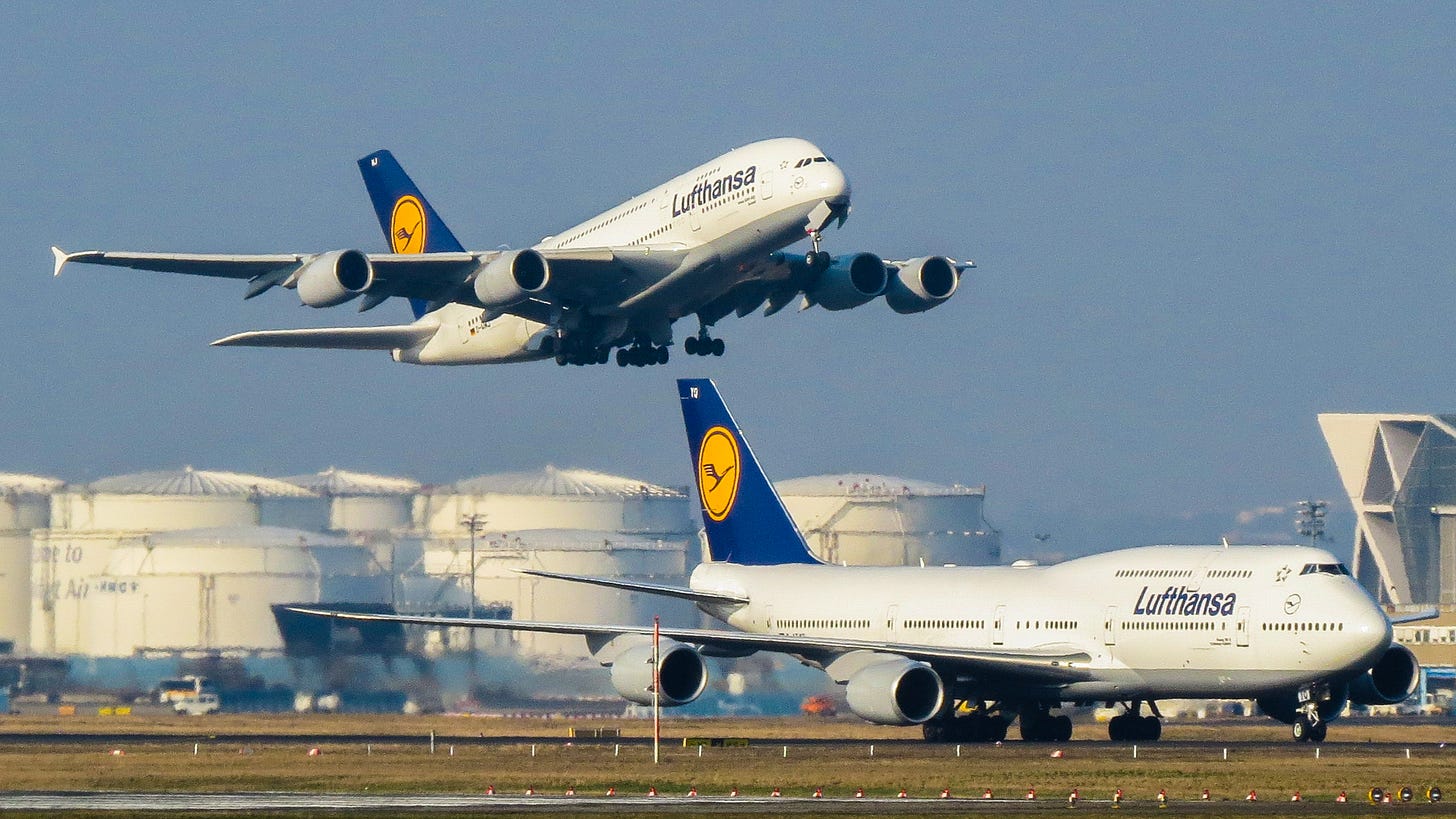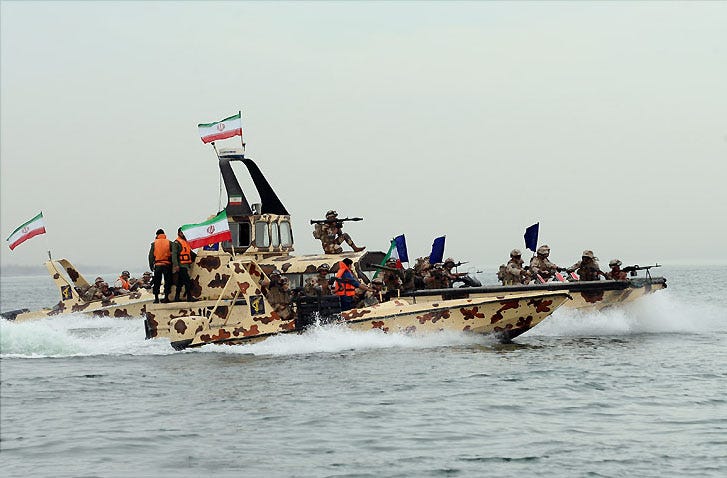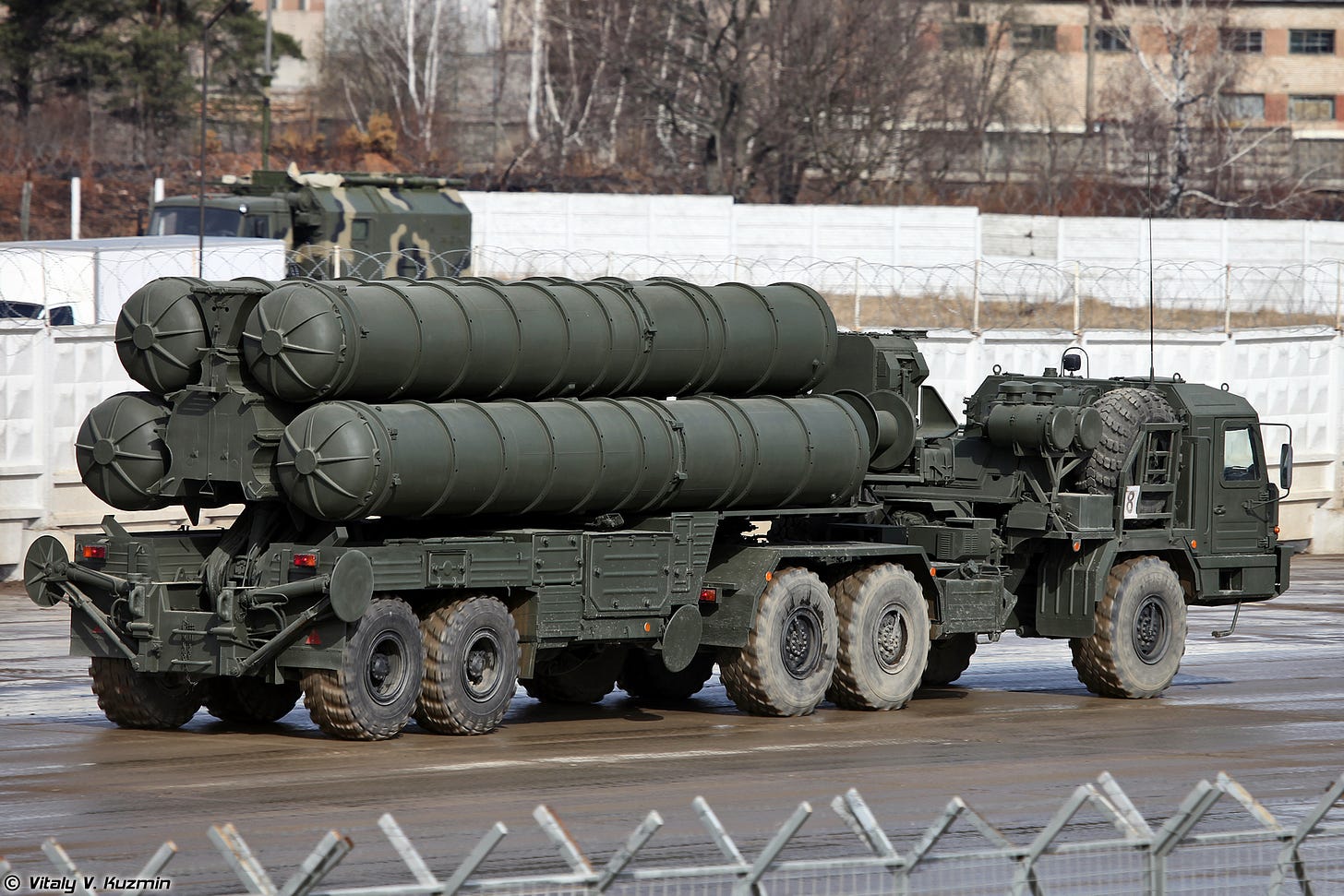Tuesday, MAY 7, 2019
Political Disruption brings you insights on how the fast-changing global political environment is creating political disruption of business.
Good Morning!
This month we saw increased activity around Taiwan, increasing the risk of an accident that could escalate into a military conflict between the US and China. Trade tensions with the EU were also growing as the EU threatens retaliation over US measures on Airbus. And while the US is tightening the screws on Iran, tensions with its NATO ally Turkey are increasing as Turkey plans to buy a Russian missile defence system.
Welcome to Political Disruption in May!
Hans Diels
P.S. My Dutch readers can check out this piece in the Belgian financial newspaper De Tijd on why the succes or failure of the US-China trade deal is not that important.
P.S.2. If you know anyone who could benefit from reading Political Disruption, just forward this mail or let them subscribe at https://politicaldisruption.substack.com
1. Increased tensions around Taiwan
Business risk: Military conflict that would disrupt global supply chains and market access to China and Taiwan.

Chinese President Xi Jinping and Taiwanese President Tsai Ing-Wen (Source: 美國之音合成圖片)
What happened? On March 31, two Chinese J-11 fighter jets crossed the Taiwan Strait’s “median line” this resulted in a standoff with Taiwanese jets in the Taiwanese airspace. Taiwan said it would “forcefully expel” Chinese warplanes next time. US National Security Advisor John Bolton reacted with a tweet pledging US “commitment'“ to Taiwan’s security.
Increasing tensions. This incident is happening in an environment of heightened tensions in the US-Taiwan-China relationship and growing assertiveness on all sides:
The state department approved a big arms deal including pilot training, maintenance and logistics for F-16 fighter jets. The last time the US sold jets to Taiwan was 1992. At the same time, Taiwan announced a 5,6% increase in its defence budget. This is a signal to China from both the US and Taiwan that the island is increasing its defences.
While the US has no formal obligation under the Taiwan Relations Act to defend the island, the US is becoming much more assertive in resisting China’s claim for dominance in its neighbourhood. The US has increased its trips through the Taiwan Strait. In the past nine months, ships sailed six times through the Strait, under Obama this was only 1-3 a year.
In January Chinese President, Xi said that Taiwan must be unified with the mainland. Taiwanese President Tsai reacted by saying that: “Taiwan absolutely will not accept ‘one country, two systems.’”
Also, there’s the growing confidence in the Chinese People’s Liberation Army’s (PLA) capabilities. Even in the US the absolute belief in the certainty of victory in a conflict with China is withering away.
“The U.S. could lose,” said Gary Roughead, co-chair of a bipartisan review of the Trump administration’s defense strategy published in November. “We really are at a significant inflection point in history.”
What’s holding everybody back? While avoiding Taiwanese independence is one of the core interests of China, it has shown restraint in its relations with the island and has so far used a softer approach, integrating the Taiwanese with its economy, increasing its dependence on the mainland. While China ultimately wants Taiwan to ‘return’ to the mainland, a major war with Taiwan (and potentially the US) would damage Taiwan’s economy so much that it might end up winning a war and having nothing more to rule.
Besides, China needs economic growth to honour the social bargain it has with its population (increasing prosperity in exchange for standstill (or decline) in political rights. A major war would cause severe economic harm to China and could endanger this bargain.
What could trigger a conflict? Accidental escalation is the main path to war between the US and China. New incursions of the Chinese in Taiwanese airspace and the Taiwanese reaction could escalate the conflict if for example a plane is shot down. Alternatively, incidents at sea (provoked or not) in the Taiwan Strait could escalate. While in the past doubts about its military capabilities hold China back to avoid escalation, its new sense of military confidence could lead to hubris that could lead to further escalation.
What to watch out for? The coming elections in Taiwan (2020) are another potential trigger. China is very sensitive to any candidates supporting (formal) Taiwanese independence. And it’s entirely possible that mainland China could stage a demonstration of its power in the run-off to the elections to let voters think twice who they support through the ballot box.
2. EU-US trade conflict, aeroplane edition
Business risk: Tariff risk for EU-to-US exporters and US-to-EU exporters.

Lufthansa Airbus A380 and Boeing 747 (Kiefer)
A long-lasting conflict. For 14 years there’s been a conflict between the EU and the US over their respective subsidies for Airbus and Boeing. Both the EU and the US have filed multiple cases with the World Trade Organization (WTO), and both have been found guilty of breaking WTO rules on subsidies. While most of the conflicting issues have been solved, a few remain.
On March 28, the (WTO) issues a final ruling stating that Boeing and the US have complied with all but one subsidy complaint. The remaining issue is tax reduction granted by Washington State.
The US reacted (through US Trade Representative Robert Lighthizer):
“This report confirms what every other WTO report on these issues has found: the United States does not provide support even remotely comparable to the exceptionally large and harmful EU subsidies to Airbus, […] It is long past time for the EU to stop their subsidies and let our world-class aircraft manufacturers compete on a truly level playing field,”
Why do I care? I don’t make aeroplanes? The US plans to impose retaliatory tariffs on $11bn worth of goods from the European Union to punish the EU for not fully complying with the WTO rulings. The exact amount depends on arbitration by the WTO (expected in a few months). Aircraft, food products, carpets and table knives are among the products in the preliminary list. (full list)
In good Tit-for-Tat-style, the EU responded that it would impose tariffs on $20bn of US goods. Fish, vegetables, fruit and other foodstuffs, but also wallets and handbags and lots of other stuff on the EU-list. (full list)
A little bit comforting. In contrast to quite some other trade conflicts these days, all this is occurring within WTO rules.
3. More US sanctions on Iran
Business risk: Increased oil prices due to lower Iranian production + risk of disruption of Strait of Hormuz that would push oil prices further upwards.

Iranian Revolutionary Guard commandos and missile boats in Great Prophet IX Maneuver in Strait of Hormuz, Persian Gulf. (Source: sayyed shahab-o- din vajedi)
No more waivers. The Trump administration announced that it would not renew any of the waivers for buying Iranian oil. China, Turkey, India, Japan, South Korea, Taiwan, Italy and Greece all had exemptions to purchase Iranian crude. Italy, Greece and Taiwan already stopped buying oil from Iran.
Big oil importers like India will face severe economic costs due to the probable price increases. For India, the problem is exacerbated as the US also put more sanctions on its other top oil supplier, Venezuela. Turkey and China (who buys almost half of all Iranian oil) condemned this move.
Oil prices jumped up. In the already tight market (with sanctions on Venezuela) “international Brent crude oil benchmark rose to more than $74 a barrel on Monday, the highest since November” reported Reuters.
The White House declared that the US, Saudi Arabia and the United Arab Emirates
have agreed to take timely action to assure that global demand is met as all Iranian oil is removed from the market.
This statement is in contrast to recent actions by the Saudi’s who have cut their production.
A Small opening? The renewed US sanctions have caused already much pressure on Iran. Its oil exports plummeted from 2.8 million barrels a day to 1.3m. The IMF predicts 40% inflation this year. Economic hardship can push the regime to become more accommodating, but at this moment it seems not to budge.
However, there are some signs that it would be open to talking to Washington. Last month, it proposed to exchange prisoners between Washington and Tehran. Tehran seems intent to play on Trump’s vanity. The President has claimed that:
Donald J. Trump is the greatest hostage negotiator that I know of in the history of the United States. 20 hostages, many in impossible circumstances, have been released in last two years. No money was paid.' Cheif (sic) Hostage Negotiator, USA!
Given how much Trump likes to conclude deals that have no game-changing impact (NAFTA renegotiation, upcoming US-China trade deal) and have zero-impact summits (North Korea), the Iranians might be on the right track here.
Or going hardline in Hormuz? The alternative for the regime could be to completely dig in, provoking ever stricter US sanctions, finally triggering Tehran to take some brash action. This month Iran’s President Hassan Rohani threatened to disrupt traffic through the Strait of Hormuz. Newly appointed Iranian Revolutionary Guards Commander Hossein Salami, whose forces control the Strait of Hormuz, also threatened to close the Strait.
4. Turkey
Business risk: Risk of cutting of market access or tariffs on Turkish products heading to the US + Risk of increased economic and exchange crisis in Turkey.

Russsian S-400 missiles during a rehearsal for a 2014 Victory-Day-Parade.
Tensions between the US and its NATO ally Turkey have been tense for quite some time now. But recently three issues have further heightened them:
Russian arms sales: Turkey plans to buy a Russian S-400 missile defence system. This would be a risk for the Western alliance as they are, according to the US, not compatible with NATO systems. The US has offered to sell Turkey Patriot systems instead and at the same time threatened with sanctions and a halt in the sale of F-35 fighter jets.
Syria: Turkey has threated to strike at the (Kurdish) Syrian Democratic Forces, who assisted Western Forces in battling Islamic State. Ankara sees them as terrorists linked to the separatist PKK in Turkey. US Secretary of State warned of “Potentially devastating consequences of unilateral Turkish military action in the region.”:
Detainees: Turkey detains several US citizens and local US consulate staff. Senators Roger Wicker (Rep.) and Ben Cardin (Dem.) introduced a bill to sanction those Turkish officials who are responsible for these detentions.
But Turkey has not given any ground on these issues, and Erdogan has stated that the missile defence deal is sealed. The prospect of US sanctions on Turkey, therefore, does not seem far away. Last year the US already sanctioned Turkey over the detention of Pastor Andrew Brunson. These sanctions led the Turkish lira into freefall.
But that was before the local elections. At this moment Turkey is in a severe economic downturn. The lira lost 28% in 2018 and Turkey is facing its first recession in a decade with unemployment at a nine-year high. Now that the local elections are over and Erdogan’s AKP Party suffered some severe setbacks in the big cities, it might get more concerned about bread and butter issues, and become more willing to compromise with the US.


